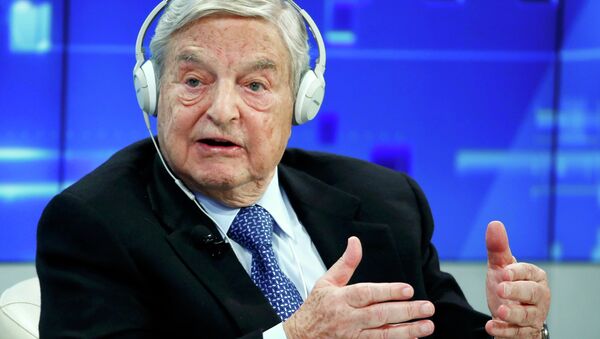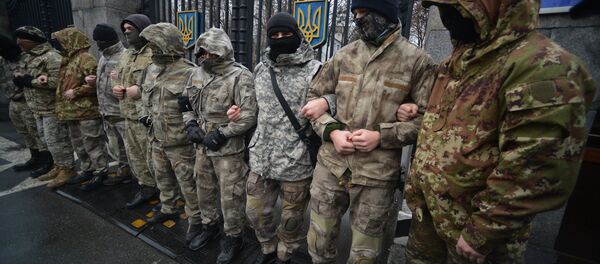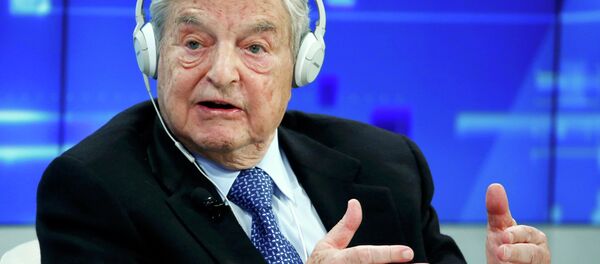"The IMF's Extended Fund Facility became insufficient even before it was approved. But EU member states, facing their own fiscal constraints, have shown no willingness to consider additional bilateral aid. So Ukraine continues to teeter on the edge of the abyss," claimed George Soros, a founder of the Open Society Foundations and one of the richest people in the world, also known as "the man who broke the Bank of England."
According to the American billionaire, the EU has chosen the wrong path, drip-feeding Ukraine, instead of pouring money in its economy. The investor pointed out that Brussels has been treating Ukraine like another Greece. Such an approach is "fundamentally wrong," Soros said adding that while Greece's crisis is a result of inadequate financial policies, Ukraine is a "different," "black-and-white case."
However, it remains unclear what "principles" and "values" the prominent businessman meant — George Soros obviously turned a blind eye to upsurge in ultra-nationalism in Ukraine as well as to military crimes of Kiev's battalions, reported by international human rights groups.
On the other hand, Western experts express deep concerns regarding Ukraine's capability to carry out necessary reforms aimed at boosting its economy. Receiving billions of euros in loan assistance, Kiev has not provided its foreign creditors with any guarantees it would fulfill all the conditions of the bailout program, noted German journalist Eduard Steiner. At the same time, the US State Department reported rising fraud, corruption, financial crimes and money laundering in Ukraine.
Soros added, however, that Kiev's Western allies should avoid involving in a direct military confrontation with Moscow or violating the Minsk deal. By making every effort to support Ukraine the EU would "recapture the values and principles that it seems to have lost," claimed the billionaire, "Needless to say, this is the scenario I advocate," he underscored.
It should be also noted that George Soros announced on Monday he would offer Kiev a €1 billion loan, if the EU poured €50 billion in Ukraine's economy.




